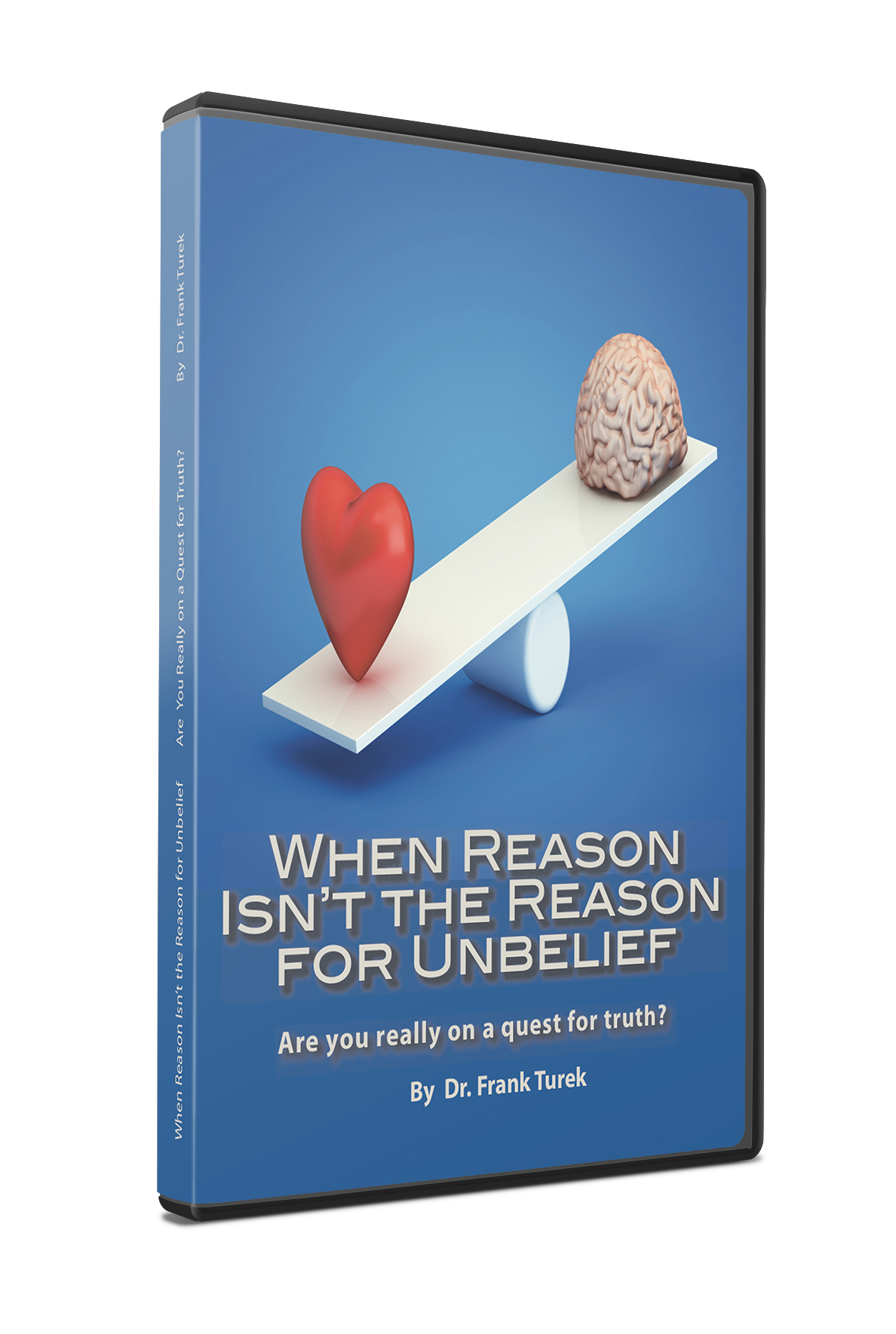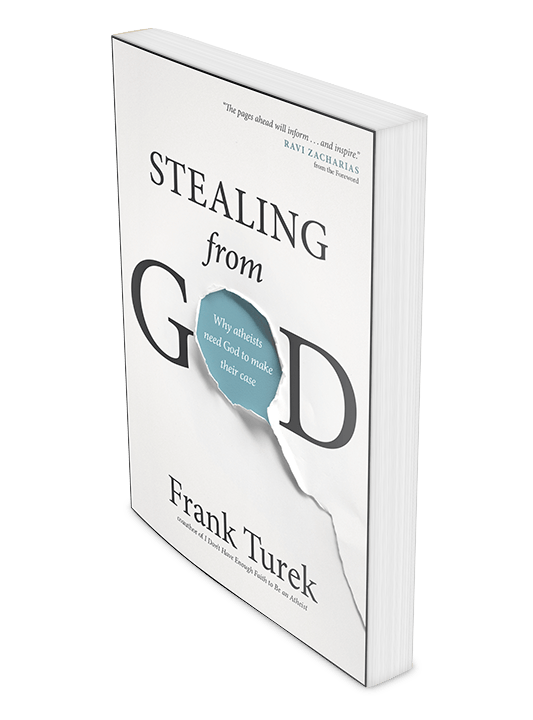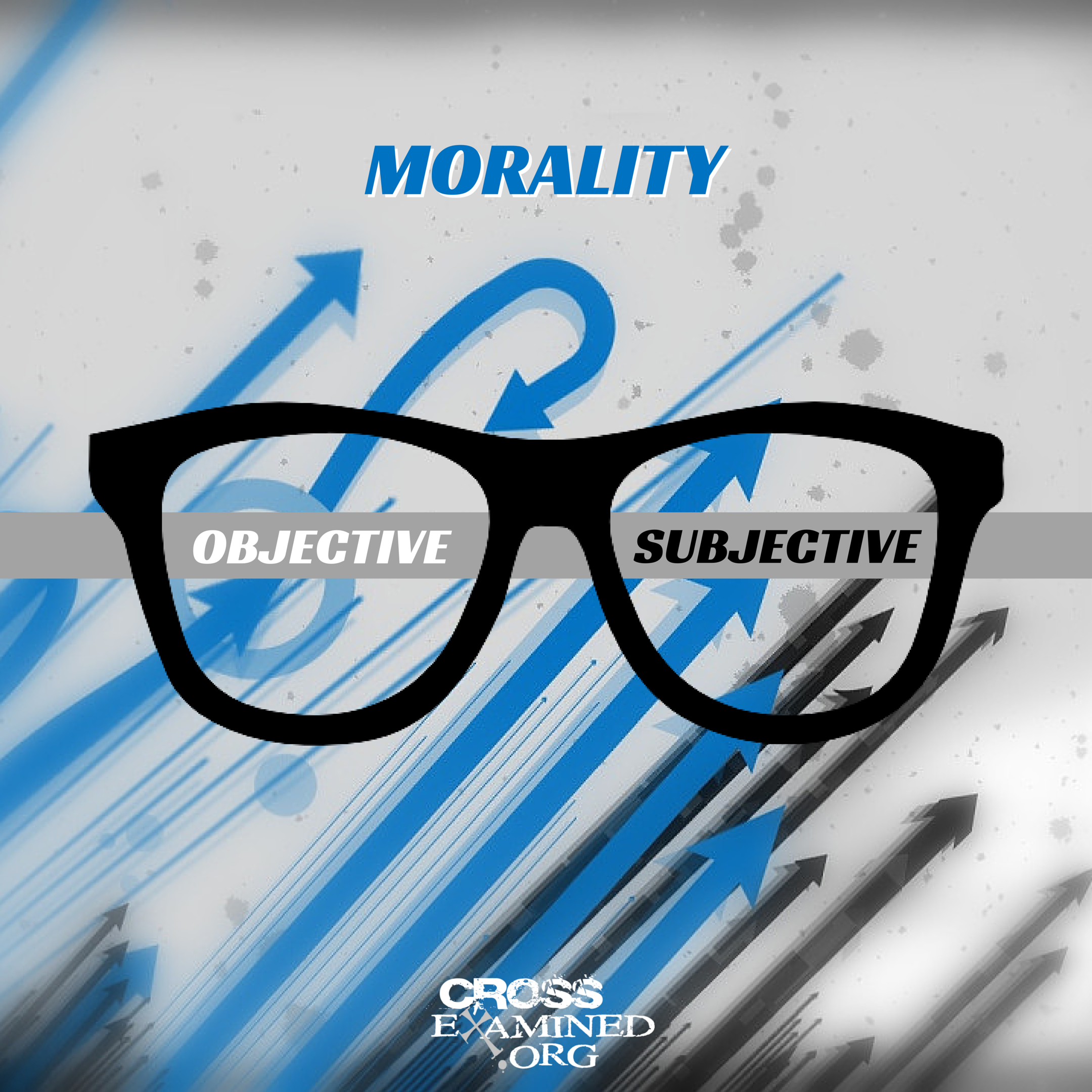By Evan Minton
My article “5 Arguments For The Existence Of Free Will” became very popular. Tim Stratton liked it so much that he featured it as a guest post on his blog FreeThinkingMinistires.com, Martin Glynn specifically asked me to post it to The Society Of Evangelical Arminians’ website, and Jairo Izquierdo published it as a guest post on CrossExamined.org. In the case of the latter, several comments came flooding in as pushback to the things I said in the article. This isn’t surprising given how popular CrossExamined.org is as an apologetics ministry. Instead of responding to the comments specifically and getting into long back-and-forth conversations with people, I thought it would be more edifying if I actually made a response article addressing a few of those rebuttals.
To the readers of this site, I will assume you have already read “5 Arguments For The Existence Of Free Will“, and the following content will assume that background knowledge. If you haven’t read it, go read that first. Moreover, I’ll address these rebuttals according to each specific argument that the rebuttal is aimed towards.
The Argument From True Love
Rebuttal: You Can’t Choose Who You Fall In Love With.
Andy Ryan wrote “You can talk about ‘love freely given’ but does anyone believe they have a choice over who they love? It’s pretty much something that just happens. Many people wish they could stop loving someone they love or regain a love they’ve lost. But in vain. So I don’t get how you connect love to free will.”
The problem with this response is that it’s equivocating “love” with “infatuation”. I’ve pointed out in other blog posts that love is not an emotion. It’s not a feeling. Love is an action or series of actions aimed at the wellbeing of the one being loved. You can choose who you love if love is an action or series of actions rather than a feeling. Obviously, you can’t control how you feel. If that were the case, I’d never feel worried, angry, or sad a single day in my entire life. When someone I love dies, I’d choose to just be giddy rather than heartbroken. While you can’t control how you feel, you can control how you act.
The idea that love is action and not an emotion is grounded in scripture. Let’s turn to one of the most famous passages on love; 1 Corinthians 13.
“Love is patient, love is kind. It does not envy, it does not boast, it is not proud. It does not dishonor others, it is not self-seeking, it is not easily angered, it keeps no record of wrongs. Love does not delight in evil but rejoices with the truth. It always protects, always trusts, always hopes, always perseveres. Love never fails.” – 1 Corinthians 13:4-8
This passage is a description of not just love, but perfect love. Go up and read the passage again very carefully. I want you to notice something. There isn’t much talk of warm, fuzzy feelings in this passage.
Kindness is not a feeling. Kindness is an action. If I buy you a house, it doesn’t matter how I feel about you. My action was a kindness towards you. My choice to buy you a house was just that: a choice. You can have very bitter feelings towards someone and will yourself to do something nice for them. Kindness does not have to be associated with feelings.
What about patience? Well, that might seem like an emotion, but in reality, patience itself is an action. I might be irritated that someone is taking a long time in doing something they said they were going to do for me, but I can choose to not to express my agitation. I can conceal it, and say “Take your time. There’s no hurry.”. An impatient person would say “What is taking you so long? Get on with it already!” I may be experiencing a feeling of impatience, but I can still express the action of patience. A friend and I may both be waiting on another friend to pick us up to take us to dinner, and I may say “What is taking him so long? He should have been here 20 minutes ago! This is going to screw up my whole schedule.” while my friend next to me may be experiencing the same emotion but keeps his impatient emotion to himself. So, although we’re both feeling the same emotion, I choose to express impatience while he chooses to express patience. When my future wife takes a long time in the bathroom getting ready, I may be irritated at that, but what will I express? Patience or impatience? The choice is up to me.
“It keeps no record of wrongs”. This is also a choice. You may incidentally remember wrongs done to you, but the one who loves will try to forget them. The one who loves will not purposefully keep a list so that he can keep throwing the misdeeds up in the misdeed doer’s face. I have been wronged by some of the people in my life, and while I can remember that I was wrong, I can’t remember very many of the specific wrongs (except when something triggers a memory). I’m trying not to keep a record.
“It does not dishonor others”. Is dishonoring others a feeling? Surely not.
“It does not boast” — regardless of what your emotional state is, you can choose not to brag about things.
“It is not self-seeking” — another action that’s not a feeling. You can choose to seek the good of others instead of your own good.
The only things resembling emotions in this passage would be the parts that say “It is not easily angered” and “rejoices in the truth”. Now, these are emotions. Does this contradict everything I’ve just said? I don’t think so. I don’t think love itself is an emotion, but that doesn’t mean it’s completely isolated from emotions. Love can invoke emotions. I’ve heard testimonies of Christians who have done kind things for their enemies. While initially gritting their teeth in distaste, over time, their continued choice to express love softened their hearts towards their enemies and they actually had emotional feelings towards them. One of my Bible teachers spoke of a man he worked for years ago who made his life Hell. The employer developed cancer and my Bible teacher reluctantly prayed for him over a long period of time. The more he prayed for his boss, the less hard feelings he had towards him. When he learned of his employer’s passing, he said that it actually broke his heart and he burst into tears. I have had similar experiences. Doing love can actually transform your feelings towards someone. This is why I think it’s entirely possible to learn to “love the one you’re with”. This would also explain why so many arranged marriages actually worked out in times past.[1]
In light of this, Jesus’ command in Matthew 5 to love our enemies makes a lot more sense. Jesus isn’t commanding us to have warm and fuzzy feelings towards the people who treat us horribly. Rather, he’s telling us to show them kindness, patience, to avoid dishonoring them, to not boast if you one up them, to seek their well-being. Most of Jesus’ examples of loving your enemies are *drum roll* actions: “ If someone strikes you on the right cheek, turn to him the other also. And if someone wants to sue you and take your tunic, let him have your cloak as well. If someone forces you to go one mile, go with him two miles. Give to the one who asks you, and do not turn away from the one who wants to borrow from you.”(verses 39-42).
In conclusion: I can’t control who I become infatuated with, but I can control which woman I show love to. I don’t have to have warm and fuzzy feelings towards someone to love them.
The Argument From Moral Accountability
Rebuttal: Your Argument doesn’t follow because you haven’t demonstrated that The Bible is true.
In one of KR’s comments, he said: “Your conclusion doesn’t follow from your premises since you haven’t established that what the Bible teaches is actually true. Your 2nd argument suffers from the same problem.”
My article was primarily aimed at Calvinists, who believe The Bible is divinely inspired and inerrant, and ergo true. So, I admit that I presupposed that The Bible was true in most of the arguments I used in my blog post. I wasn’t concerned with refuting atheistic determinists, but determinists who were Christians. The only argument in the blog post that would apply to both Christian and non-Christian determinists was The FreeThinking Argument. I’ve argued with KR in the comment sections of other blog posts on Cross Examined’s website, so I know that he isn’t a Christian. It isn’t surprising that he wouldn’t find the argument from moral accountability compelling since it does presuppose that The Bible is true.
The Appearance Of Free Will Problem
Rebuttal: I Feel Determined?
In the same comment, KR wrote “As for the appearance of free will, it may be the case that we have different experiences. While I certainly feel that I have a self and that this self-performs various actions and has various thoughts, it feels to me that these actions and thoughts are always a reaction to something that happened before. I don’t feel that I decide to perform an action or have a thought ‘ex nihilo'”.
I don’t like responding to arguments when I’m not 100% sure I understand. But I studied this response carefully and I think I know what he’s saying here. I suspect that KR may be misrepresenting what libertarian free will is when he says “I don’t feel that I decide to perform an action or have a thought ex nihilo.” It is a common misconception that libertarian free will asserts that our choices are “random” or “spontaneous”, like the appearance of a particle in the quantum vacuum. No one knows when and where one is going to pop up. I don’t think my choices originate “ex nihilo” either, at least if KR is using that term the way I think he’s using it. Certainly, there are previously existing factors inside and outside of myself that have an influence on my choices, but does this mean that they determine my choices? I would say no. My feeling of hunger may influence me to get up and grab something to eat, but the hunger doesn’t determine me to eat. My urge for sex may influence my decision to have intercourse with someone, but that doesn’t mean I couldn’t have refrained from having sex with that person. Libertarian Free Will (LFW) neither asserts that our choices have no good reasons or motivations behind them. I may choose to eat because I’m hungry or I may choose to refrain from eating because I’m too busy working on a blog post, or maybe I’m in the middle of a fast, or maybe I’m dieting to lose weight. LFW doesn’t assert that our choices are without purpose, just that it laid within our power to choose the opposite of what we actually chose.
Does KR have an accurate understanding of LFW? If not, that might explain why he feels he doesn’t have it. If he thinks of free will as spontaneous actions devoid of any influences or motivations, then it’s no wonder why he doesn’t think he has it. I don’t believe I have that kind of free will either!
The Free Thinking Argument
Rebuttal 1: Computers Do Calculations And They Don’t Have Free Will.
Andy Ryan wrote “You’ve not shown or demonstrated this. Why does the latter follow from the former?” Premise 3 of The Free Thinking Argument states that if libertarian free will does not exist, the rationality and knowledge does not exist. He says I haven’t demonstrated that this premise is true. Why does he think that?
The argument I put forth was a quote from Tim Stratton. Stratton said “Premise (3) is equivalent with ‘if all things are causally determined, then that includes all thoughts and beliefs.’ If our thoughts and beliefs are forced upon us, and we could not have chosen better beliefs, then we are simply left assuming that our determined beliefs are good (let alone true). Therefore, we could never rationally affirm that our beliefs are the inference to the best explanation – we can only assume it. Here is the big problem for the atheistic naturalist: it logically follows that if naturalism is true, then atheists — or anyone else for that matter — cannot possess knowledge. Knowledge is defined as ‘justified true belief.’ One can happen to have true beliefs; however, if they do not possess warrant or justification for a specific belief, their belief does not qualify as a knowledge claim. If one cannot freely infer the best explanation, then one has no justification that their belief really is the best explanation. Without justification, knowledge goes down the drain. All we are left with is question-begging assumptions.”[2]
Andy responded “Why does one have to ‘freely’ infer it? Do computers require free will to make accurate calculations? Evidently not – they seem to get by just fine! Imagine giving two computers sentience. They argue between them over a particular course of action and which option is the best. What’s wrong with describing what they have as ‘knowledge’?”
To hark back to Stratton’s explanation: knowledge is “justified true belief”. In order to have a belief that is both true and justified, one must be able to think freely. In order to think freely, one must have free will. You can’t be a free thinker without free will. In the case of computers, yes, they do mathematical calculations and they always come up with the right answer to the equation, but that’s because there were people who causally determined the computer to have an infallible calculator inside of it. The programmer just as well could have programmed the computer to come up with wrong answers, and the computer wouldn’t know the difference. Or perhaps someone hacked into the computer and infected it with a virus that causally determines it to come up with calculations. If human beings are causally determined, then how do you know that the beliefs you hold to aren’t irrational? How could you keep yourself from committing fallacies? How could you know whether or not the beliefs you were determined to hold are true? They could be true, they could have good reasons for them, but you wouldn’t be able to rationally weigh alternatives. If person 1 is causally determined to believe truth A, if person 1 was causally determined to believe lie B, he was determined to believe B.
Just as a computer will come up with the truth or a lie depending on how it’s wired, so we will come to true or false beliefs depending on how we’re wired. Can it really be said that someone possesses knowledge (i.e justified true belief) when the conclusions they came to were a mere matter of the molecules and chemistry in their brain + their environment? If the atoms in their brains bumped around differently, or if they had lived different lives in different circumstances and environments, their beliefs very well could have been different. What someone believes, on naturalism, depends on happenstance. If what someone believes depends on happenstance, how can that belief be said to be justified? It could, by happenstance, be a true belief, but it would not be a justified true belief. You would just happen to hold to the correct viewpoint.
The same problem affects theological determinism. If God causally determines everything we think, say, and do, then if we believe the correct theological doctrines or not just depends on whatever God decreed we would believe.
William Lane Craig said it well: “There is a sort of dizzying, self-defeating character to determinism. For if one comes to believe that determinism is true, one has to believe that the reason he has come to believe it is simply that he was determined to do so. One has not in fact been able to weigh the arguments pro and con and freely make up one’s mind on that basis. The difference between the person who weighs the arguments for determinism and rejects them and the person who weighs them and accepts them is wholly that one was determined by causal factors outside himself to believe and the other not to believe. When you come to realize that your decision to believe in determinism was itself determined and that even your present realization of that fact right now is likewise determined, a sort of vertigo sets in, for everything that you think, even this very thought itself, is outside your control. Determinism could be true; but it is very hard to see how it could ever be rationally affirmed since its affirmation undermines the rationality of its affirmation.”[3]
Rebuttal 2: What Is A Soul And How Does It Allow For Free Will but Physicalism Doesn’t?
In that same comment, Andy Ryan said “What exactly is a soul and by what exact mechanism does it make libertarian free will possible where it is otherwise impossible? If one person has a soul and another person doesn’t, how does the soul lead to better or more informed decisions in the first person? If their brains are otherwise working exactly the same, I don’t see the difference.”
Andy is responding to the second premise of The Free Thinking Argument which states that if the soul does not exist, then no one has a libertarian free will. First, souls are immaterial entities that animate the physical bodies of humans and higher animals. It controls the brain and the brain controls the body. When a person dies, the soul leaves the body, leaving it lifeless. A soul isn’t something you have, it’s something you are. A body is what you have.
If people are merely physical organisms, then that means all of our thoughts, feelings, and actions are causally determined by brain chemistry, firing neurons, external environmental conditions and so on. How can free will exist if a man is nothing more than a collection of physical parts? Does a computer have free will? Does an amoeba have free will? Do thunderclouds have free will? No. All of the above react to physical cause and effect because they are purely physical things. I just took a swig of diet coke after typing that last sentence. If humans are purely physical creatures, then I don’t see how we can control what we do any more than my diet coke can control whether or not it fizzes.
Many atheists, like Francis Crick who I quoted in the article, are determinists precisely because they are physicalists. It’s their physicalism that drives them to the conclusion that we are merely organisms reacting to stimuli. The assertion of premise 2 is that if the soul doesn’t exist, then free will doesn’t exist. I think I’ve done a pretty good job explaining that we have good reason to believe this is true. Now, how does the soul solve the problem? I’m not entirely sure what it is about a soul that gives it the ability to choose between alternatives, but I do know that it makes human beings more than mere physical objects. If I am a soul with a body, then there’s an aspect of me that transcends the natural realm, and that therefore entails that I am not necessarily subject to do whatever my environment and internal brain activity make me do. I have a mind, not just a brain. And while the brain can affect/influence the mind (e.g mental illnesses like schizophrenia), and the reverse is also true (e.g studies have shown that positive thoughts and negative thoughts can shape your brain), it is not the case that my brain makes me do anything.
Conclusion
I don’t think any of the people in the comment section successfully refuted any of the arguments I put forth in libertarian free will.
By the way, there was a comment left by a person named John B Moore, but I didn’t address it because he didn’t get any rebuttals. All he did was essentially say “Your arguments are no good. You’re wrong”. Not a quote, but that’s the essence of his comment. He didn’t say which of the premises of which of the arguments were not true, nor did he tackle my arguments for the truth of the premises.
Notes
[1] I ‘m not advocating for arranged marriages. I’m just saying that maybe a reason so many of them actually turned out well was that the people realized “This is who I’m going to be stuck with for the rest of my life. I should make every effort to show love to him or her”.
[2] Tim Stratton, “The FreeThinking Argument In A Nutshell”, November 30th 2015, http://freethinkingministries.com/the-freethinking-argument-in-a-nutshell/
[3] William Lane Craig, from the article “Q&A: Molinism VS. Calvinism: Troubled By Calvinists”, – http://www.reasonablefaith.org/molinism-vs-calvinism
Original Blog Source: http://bit.ly/2ku9IhP





 No free will = no rationality
No free will = no rationality




